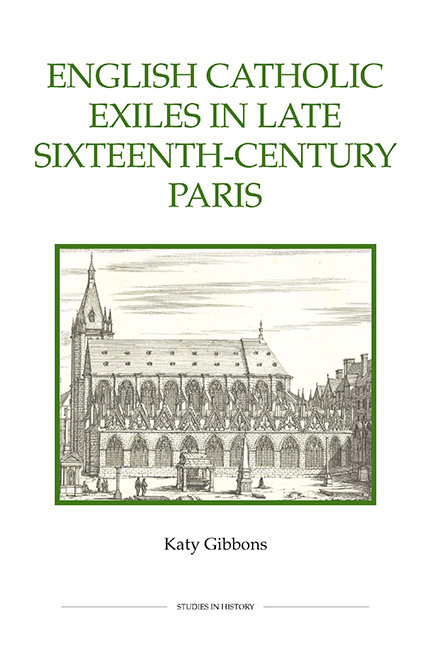Book contents
- Frontmatter
- Contents
- Acknowledgements
- Abbreviations
- Editorial conventions
- Introduction
- 1 The home and host contexts for Elizabethan exiles
- 2 Between civility and piety: exile niches in an urban environment
- 3 Exile in action: communicating and propagating the cause of radical Catholicism
- 4 Making sense of exile: alternative and competing representations
- 5 Returning or remaining? Divisions and longer-term developments in English Catholicism
- Conclusion
- Bibliography
- Index
1 - The home and host contexts for Elizabethan exiles
Published online by Cambridge University Press: 11 May 2017
- Frontmatter
- Contents
- Acknowledgements
- Abbreviations
- Editorial conventions
- Introduction
- 1 The home and host contexts for Elizabethan exiles
- 2 Between civility and piety: exile niches in an urban environment
- 3 Exile in action: communicating and propagating the cause of radical Catholicism
- 4 Making sense of exile: alternative and competing representations
- 5 Returning or remaining? Divisions and longer-term developments in English Catholicism
- Conclusion
- Bibliography
- Index
Summary
In 1581 William Allen, leader of the English Catholic mission and founder of the college at Douai, wrote that he and others ‘were constrained to flee and forsake our countrie … by the warrant and example of Christ … and other our forefathers in faith, in the like persecutions’. This view was reiterated elsewhere: Thomas Hide wrote that those who ‘lye and live as strangers scattered in dispersion’ were ‘afflicted Catholics’, suffering for their faith. In letters to England Thomas Copley claimed that he had left for ‘libertie of conscience in matters of faith’. These presentations were full of suggestive power, yet were not unproblematic reflections of English Catholics overseas. For pillars of the Protestant regime, such as William Cecil, those abroad aimed to ‘maintayne themselves in rebellious rancours against the Queen's majesty’. Anthony Munday declared that they were ‘casting away the care of their Countrie’; and that Elizabeth's death and the overthrow of the realm ‘was a generall determination of our Englishemen, dispersed beyond the Seas’.
These interpretations were both responding to those who had already left the country and forming part of the backdrop for those who continued to leave. The rhetoric of printed polemic, explored more fully in chapter 4, has been the focus of scholarly attention, but the factors behind a decision to go, or to send kin overseas, deserve closer scrutiny. Since Elizabeth's accession, Catholics had been leaving England. In the early years of the reign this was a small-scale movement, mostly of priests and intellectuals who had installed themselves in the urban environments of the Low Countries. In 1574 the seminary at Douai was founded to train the next generation of English priests. By this point, a mainly clerical exile had become a wider phenomenon, with significant numbers of laity also relocating overseas. The position and potential activity of lay exiles was to come to the foreground in the 1580s, particularly in the French capital.
This chapter explores the multiple reasons behind the movement of Catholic laity to Paris. What was the situation in England by the middle decades of Elizabeth's reign for those who chose to go, and why did they turn to Paris? In order better to understand the profile and outlook of those who went abroad, the ‘push’ factors encouraging families in England to look abroad, will be investigated, as will the ‘pull’ factors connected to Paris.
- Type
- Chapter
- Information
- English Catholic Exiles in Late Sixteenth-Century Paris , pp. 15 - 48Publisher: Boydell & BrewerPrint publication year: 2011



